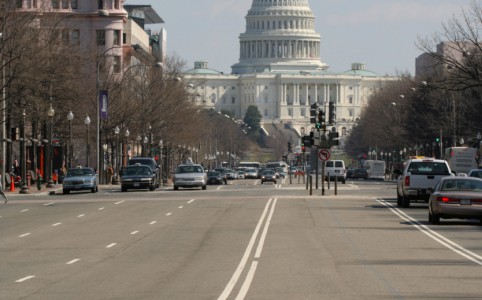
Lawmakers Call for Currency Language in Trade Talks
There is growing bipartisan support in both the House and Senate for including strong, enforceable anti-currency manipulation provisions in the Trans-Pacific Partnership (TPP) agreement— a 12-country Asian-Pacific trade deal currently under negotiations— to deter member countries from manipulating their currency in order to gain an unfair competitive advantage and level the playing field for the U.S. with all of its trading partners.
As negotiations for the TPP near conclusion, a major rift persists between President Barack Obama and members of his political party. Some Congressional Democrats remain cautious about granting the president Trade Promotion Authority (TPA), also known as “fast-track” authority, primarily due to concerns regarding transparency and long-term impacts on U.S. businesses and workers. Some Republicans have now joined forces with their Democratic-counterparts in opposing TPA, until provisions dealing with currency manipulation are included in the TPP.
The subject was pressed during bicameral committee hearings held with U.S. Trade Representative (USTR) Michael Froman and U.S. Treasury Secretary Jack Lew. Both officials explained that the Treasury Department is leading the efforts to address currency manipulation, and while it is not being addressed in the TPP deal, the agency is pursuing alternative routes to address the issue, such as through the G-7, G-20, the International Monetary Fund (IMF) and other bilateral talks.
During the hearings, lawmakers argued that those efforts have not kept pace with the growing adverse impacts of increasing currency manipulation on American businesses and workers. Policymakers have urged officials to use these agreements to stop trading partners, including China and Japan, from intentionally weakening their currencies and increasing their exports to the U.S. while reducing imports of American goods.
Bipartisan, bicameral legislation has been introduced in the Senate and the House to thwart currency manipulation practices of foreign countries and foreign entities by strengthening existing countervailing duty law. The Currency Undervaluation Investigation Act (S. 433) introduced by Senator Rob Portman (R-Ohio) and the Currency Reform for Fair Trade Act (H.R. 820) introduced by House Ways and Means Committee Ranking Member Sander Levin (D-Mich.) would require the U.S. Department of Commerce to investigate and impose countervailing duties to offset instances in which a foreign country artificially deflates the value of its currency to make their exports to the U.S. cheaper.
The Peterson Institute estimates that over the last decade interventions in currency markets by foreign governments have cost U.S. workers approximately five million jobs by making it more difficult for U.S. exporters to compete in other countries and by subsidizing their exports. Furthermore, the Economic Policy Institute found that ending currency manipulation could reduce the U.S. trade deficit by an estimated $500 billion within three years, increase GDP by $720 billion, create 5.8 million American jobs, and reduce the federal budget deficit by nearly $266 billion.
S. 433 and H.R. 820 are similar to a measure that passed the House with overwhelming bipartisan support in 2010. With regard to those lawmakers who are skeptical of TPP and TPA, these bills could serve as a potential vehicle for lawmakers hoping to address their concerns. The measures, however, are expected to face opposition from the Republicans in both chambers and the administration who are hesitant to add currency provisions to TPP, which may setback the progress that has already been made.


COMMENTS